Publications
-
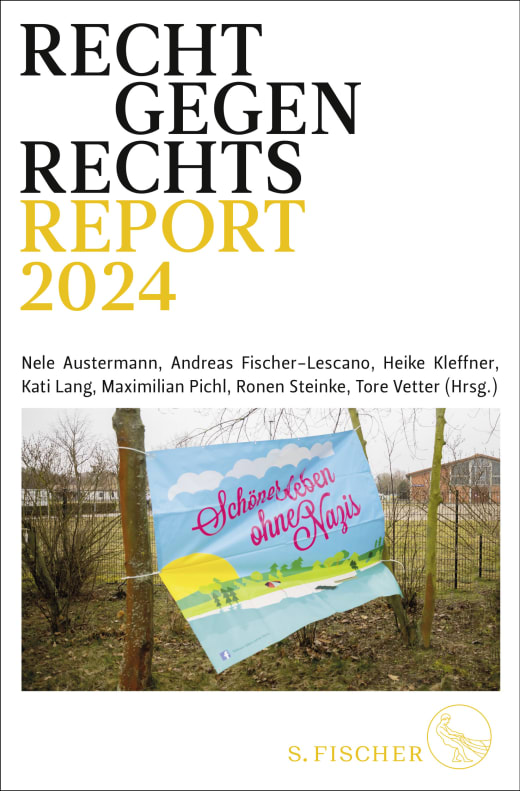 Was lange währt, wird endlich gut? Staatsanwaltschaft braucht drei Anläufe und fast drei Jahre, um gegen einen Neonazi vorzugehen, der erkennbar gegen Jüd:innen hetzt
Was lange währt, wird endlich gut? Staatsanwaltschaft braucht drei Anläufe und fast drei Jahre, um gegen einen Neonazi vorzugehen, der erkennbar gegen Jüd:innen hetzt
-
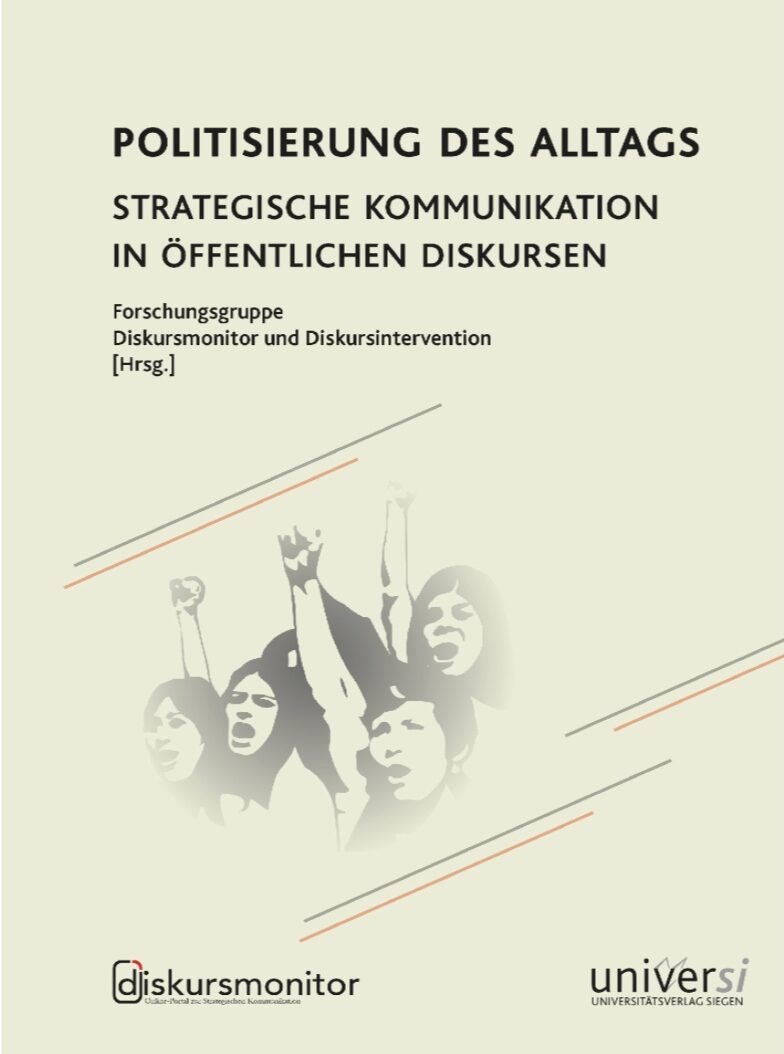 Politisierung als Delegitimation. Zur anti-genderistischen Darstellung und Lebenswirklichkeit queer-christlicher Gottesdienste
Politisierung als Delegitimation. Zur anti-genderistischen Darstellung und Lebenswirklichkeit queer-christlicher GottesdiensteThis article aims to critically examine anti-genderist representations of queer Christian church services by analyzing social media data and discourse ethnographic field research. In this regard, the concept of ‘anti-genderism’ is first discussed with reference to current research literature and related to church policy contexts.
-
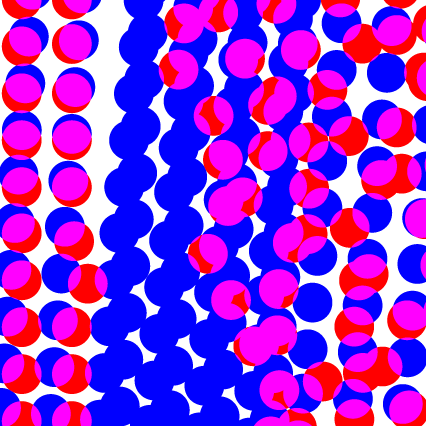 Radical Democratic Care: eine sorgetheoretische Perspektive auf Praxen des Widersprechens
Radical Democratic Care: eine sorgetheoretische Perspektive auf Praxen des Widersprechens
-
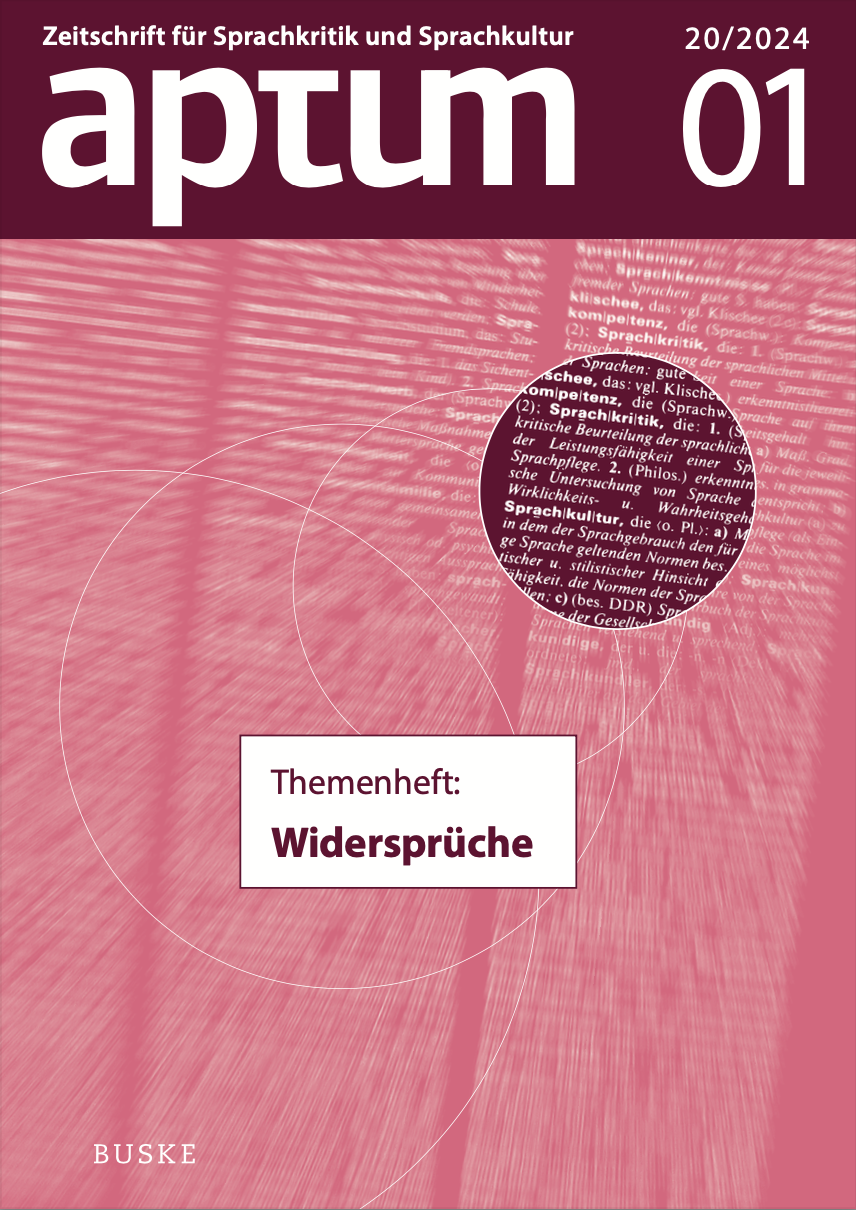 Zur Ästhetik von Widerspruchspraxen am Beispiel des feministischen Abtreibungsdiskurses in den 1970er Jahren
Zur Ästhetik von Widerspruchspraxen am Beispiel des feministischen Abtreibungsdiskurses in den 1970er JahrenIn this article, the proposal is made to analyse practices of contradiction with regard to their aesthetic potential. On the one hand, this is intended to demonstrate the diverse possibilities of contradiction studies and, on the other, to emphasise the role of aesthetic texts in protest discourses. Texts from the feminist abortion discourse will be used as examples.
-
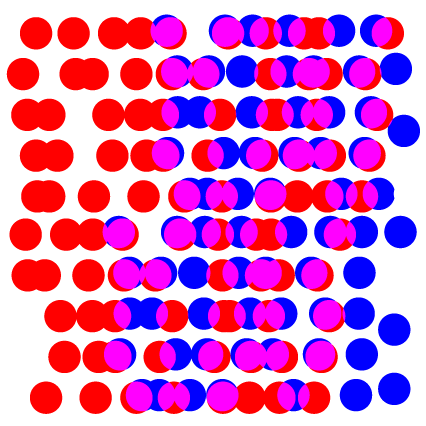 Mimicry of Marginality. On Masking Hegemonic Positions Through Discourse
Mimicry of Marginality. On Masking Hegemonic Positions Through Discourse
-
 Towards Equity and Decolonization? An Introduction into the Blog Debate on the World Health System after the Pandemic
Towards Equity and Decolonization? An Introduction into the Blog Debate on the World Health System after the PandemicThe COVID-19 pandemic exposed systemic problems in the global health system. It revealed that the global health system perpetuates global health inequalities rather than effectively reducing them: The international community, particularly the countries of the Global North, failed to make COVID-19 vaccines widely available to the populations of the world’s poorest countries. This blog debate takes stock of the reform debate about a just and decolonizing transformation of the health system. Bringing together scholars from various disciplines, the contributions of this debate ask what a fair global health system could look like and what role the law plays in it.
-
 Staged Dissent – »Change My Mind« as a Vehicle of Instrumental Deliberation within the Identitäre Bewegung Österreich
Staged Dissent – »Change My Mind« as a Vehicle of Instrumental Deliberation within the Identitäre Bewegung ÖsterreichIn this paper Jonas Trochemowitz and Lara Herford aim to analyze the talking format of Change my Mind by Steven Crowder and its adaptation by the former spokesperson of the right-wing extremist group Identitäre Bewegung in Austria. By employing the concept of ›genre of dissent‹ we ask the question how democratic values of deliberation are strategically used to gain legitimacy for far right positions in discourse.
-
 Widerspruchsresponsive Nachhaltigkeit
Widerspruchsresponsive NachhaltigkeitThe EU’s free trade agreement with New Zealand fails to establish a critical concept of sustainability On July 9, 2023, the European Union and Aotearoa New Zealand concluded a comprehensive free trade agreement, which the European Commission describes as the most ambitious agreement ever with regard to sustainability issues. A closer look reveals that the scope of regulation is more comprehensive and progressive in many respects than in other agreements. Nevertheless, deficits can be identified in the design of the dispute settlement procedure, which are also due to the fact that the sustainability chapter is unable to establish a critical concept of sustainability that is sensitive to its contradictions. Findings from Contradiction Studies can help to fill this gap. Contradictions are associated with the concept of sustainability as it is used in the agreement. Only its recognition makes it possible to negotiate these contradictions at a legal level. To this end, the dispute settlement procedure must be made more effective with the involvement of civil society actors.
-
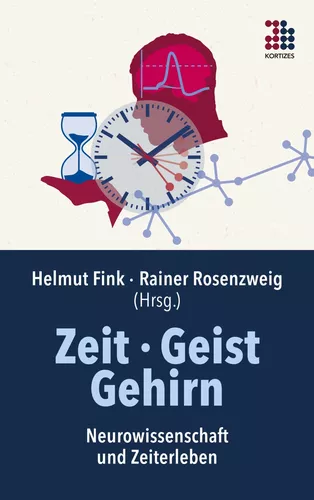 Zeitliche Vielfalt – Erscheinungsformen von Zeit und die Aufgabe der Philosophie
Zeitliche Vielfalt – Erscheinungsformen von Zeit und die Aufgabe der PhilosophieProceedings of the symposium Zeit · Geist · Gehirn. Neurowissenschaft und Zeiterleben 2021.
-
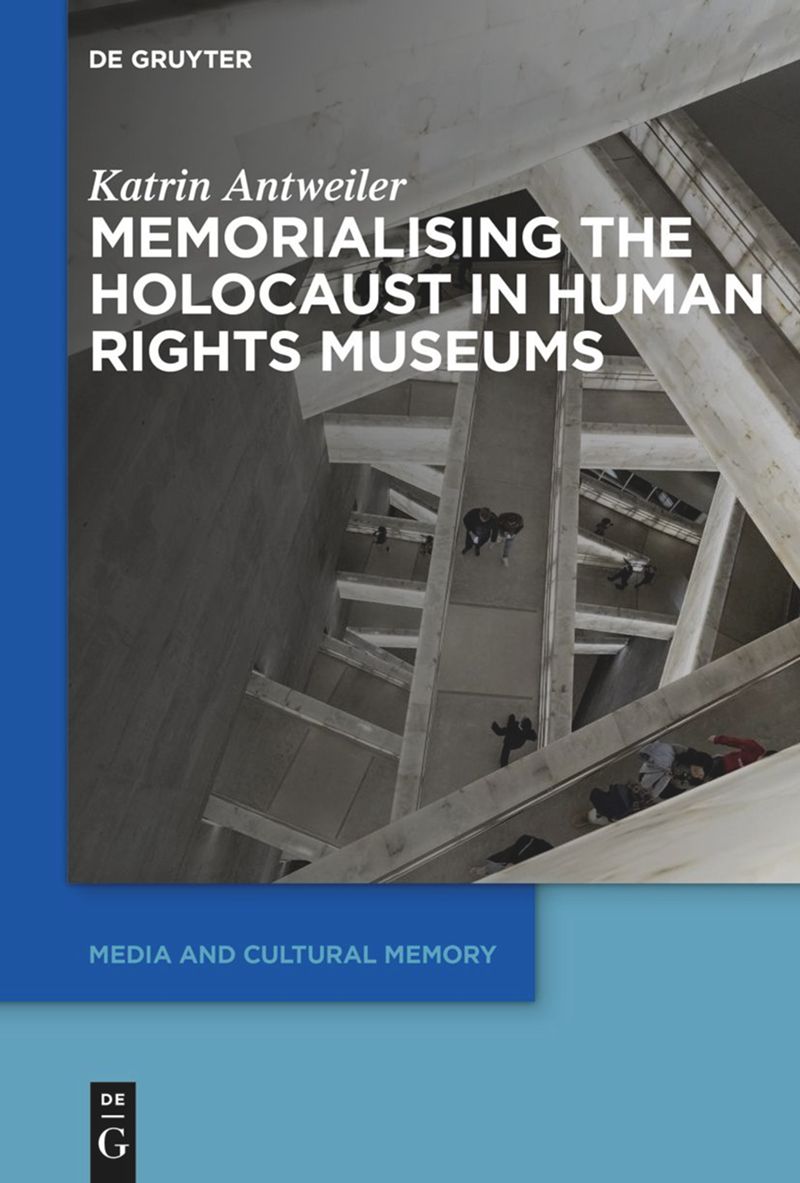 Memorialising the Holocaust in Human Rights Museums
Memorialising the Holocaust in Human Rights MuseumsThis book provides an analysis of the forms and functions of Holocaust memorialisation in human rights museums by asking about the impact of global memory politics on how we imagine the present and the future. It compares three human rights museums and their respective emplotment of the Holocaust and seeks to illuminate how, in this specific setting, memory politics simultaneously function as future politics because they delineate a normative ideal of the citizen-subject, its set of values and aspirations for the future: that of the historically aware human rights advocate.
-
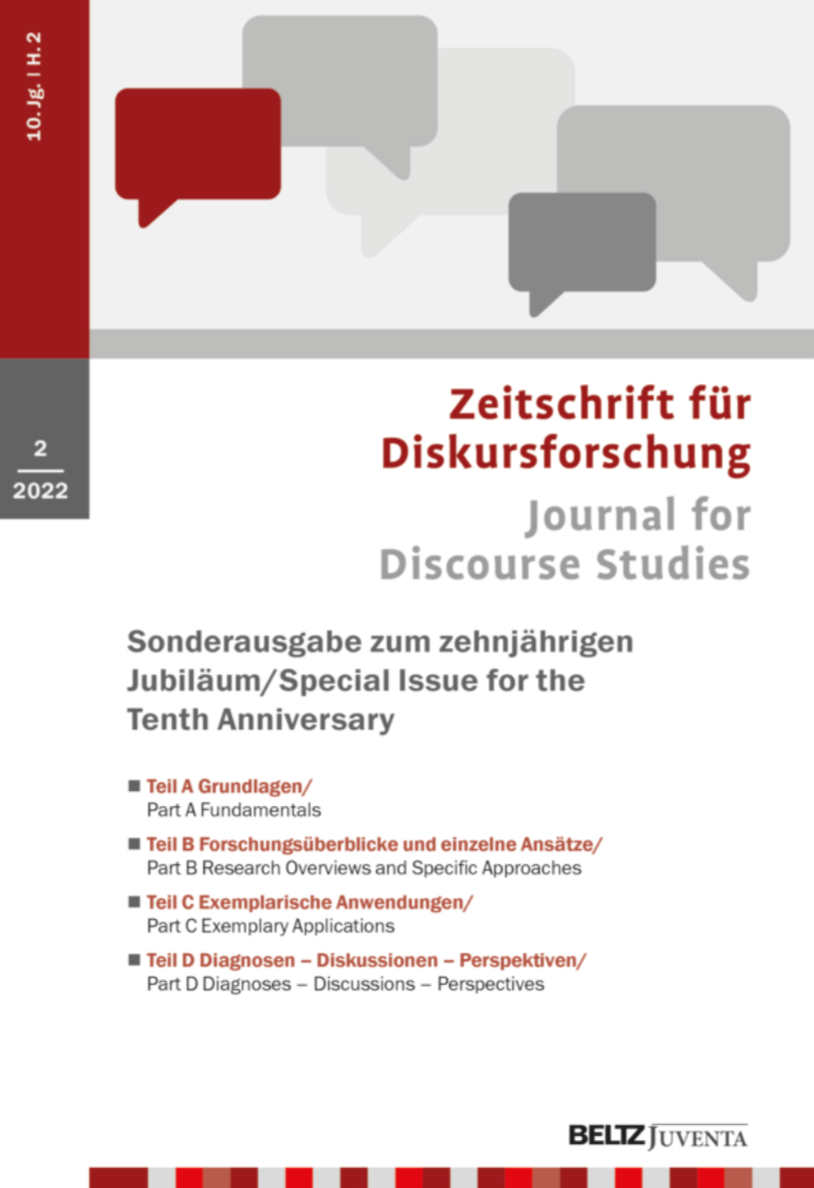 Mythos Zuhören – Bemerkungen zur Diskursphänomenologie gerichteter Aufmerksamkeit
Mythos Zuhören – Bemerkungen zur Diskursphänomenologie gerichteter AufmerksamkeitBased on the omnipresence of euphemistic talk about listening, the essay examines the network of relationships between listening and discourse. A widespread myth, in which listening is understood in isolation as a replicative action and the imponderables of listening are systematically covered up, is contrasted with the assumption that listening is language in contradiction and as such constitutive for discourse and vice versa. The question is about the possibilities of a sociolinguistics of listening and in particular about a conceptual classification of listening in the field of tension between the positivity of speech and the intentionality of listening. I speak of discourse phenomenology, without overlooking the fact that this also breaks up a scientific-historical juxtaposition of discourse analysis and phenomenology.
-
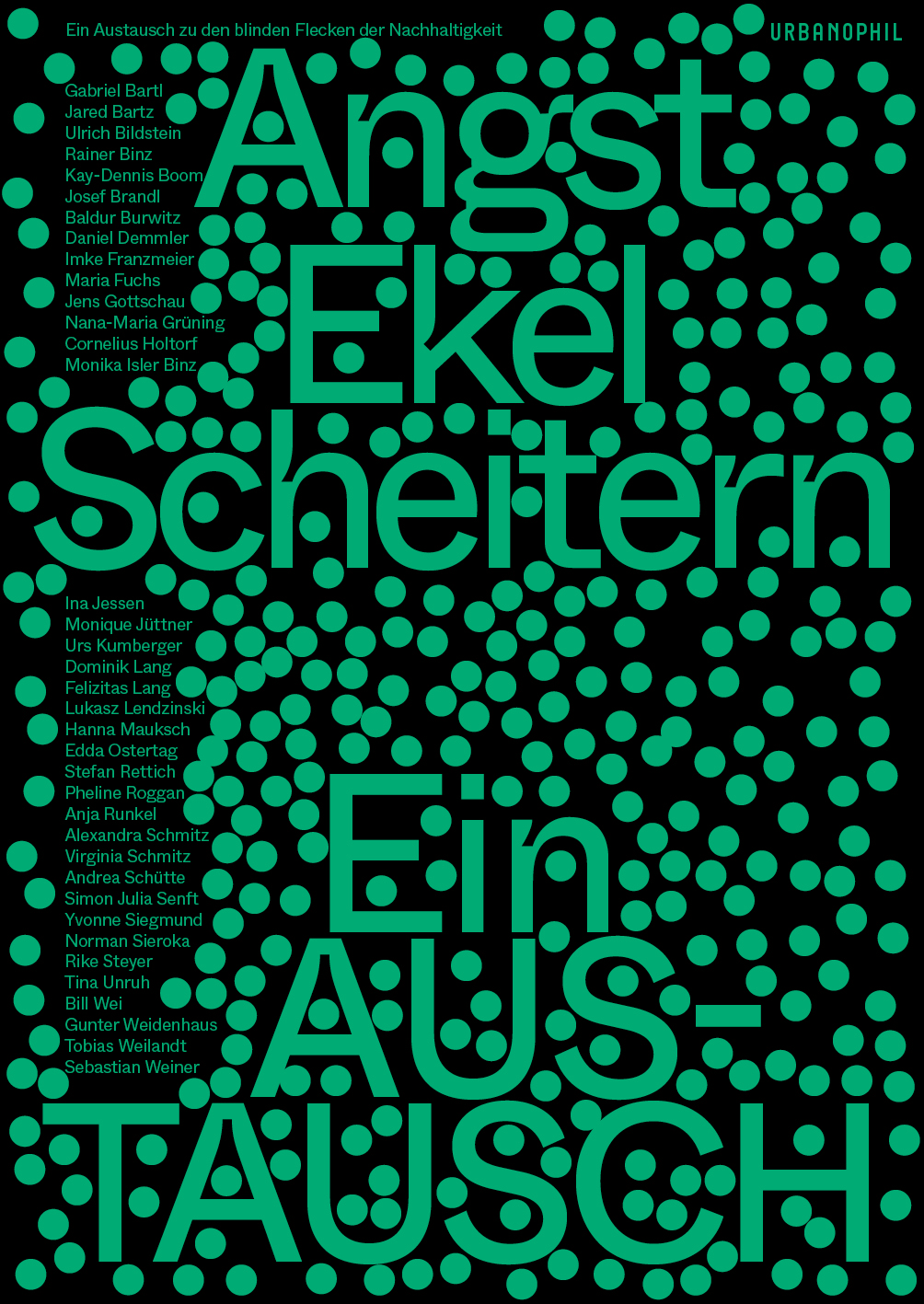 Ritual und Experiment – Versuch einer Annäherung an die Natur
Ritual und Experiment – Versuch einer Annäherung an die NaturThe relationship between man and nature is subject to constant change. While nature was long considered threatening and alien, the idea of man in harmony with nature developed in the 16th century. Another profound change in this relationship has been accompanied by industrialisation and rapid urbanisation since the 19th century. The relationship between humans and nature is becoming unbalanced and jeopardises the survival of many species, including humans, on this planet. The environmental debate that has been ongoing since the 1960s has only been able to change this to a limited extent. Rather, there seems to be a persistent inability – a ‘blind spot’ – to (re)establish and maintain socio-ecological relationships with our habitat. The urgent question arises as to how we can get closer to nature again and which strategies appear helpful for this.
-
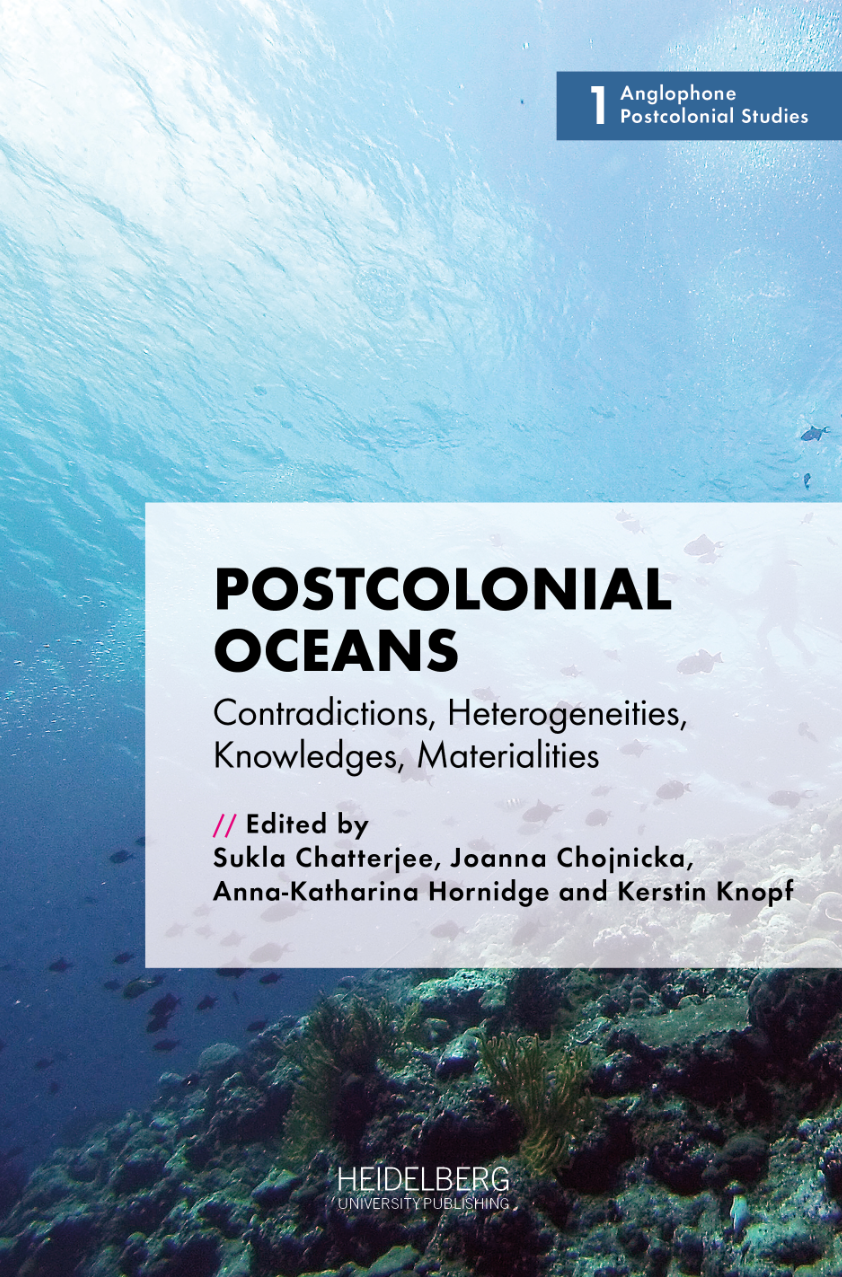 Postcolonial Oceans. Contradictions, Heterogeneities, Knowledges, Materialities
Postcolonial Oceans. Contradictions, Heterogeneities, Knowledges, MaterialitiesThis book contributes to the study of oceans, seas, coastal waters, and rivers within blue humanities by broadening, circulating, and interweaving knowledge about such waters, ocean epistemologies, and sea narratives from pluriversal epistemological, geographical, cultural, and disciplinary perspectives. The contributors from Africa, Asia, the Caribbean, Europe, North America and the Pacific explore the interconnections between oceans, coastal areas, rivers, humans, animals, plants, organisms, and landscapes in the fields of cultural history and cultural studies, critical race and postcolonial studies, marine and environmental studies, linguistics, literature, film and media studies.
-
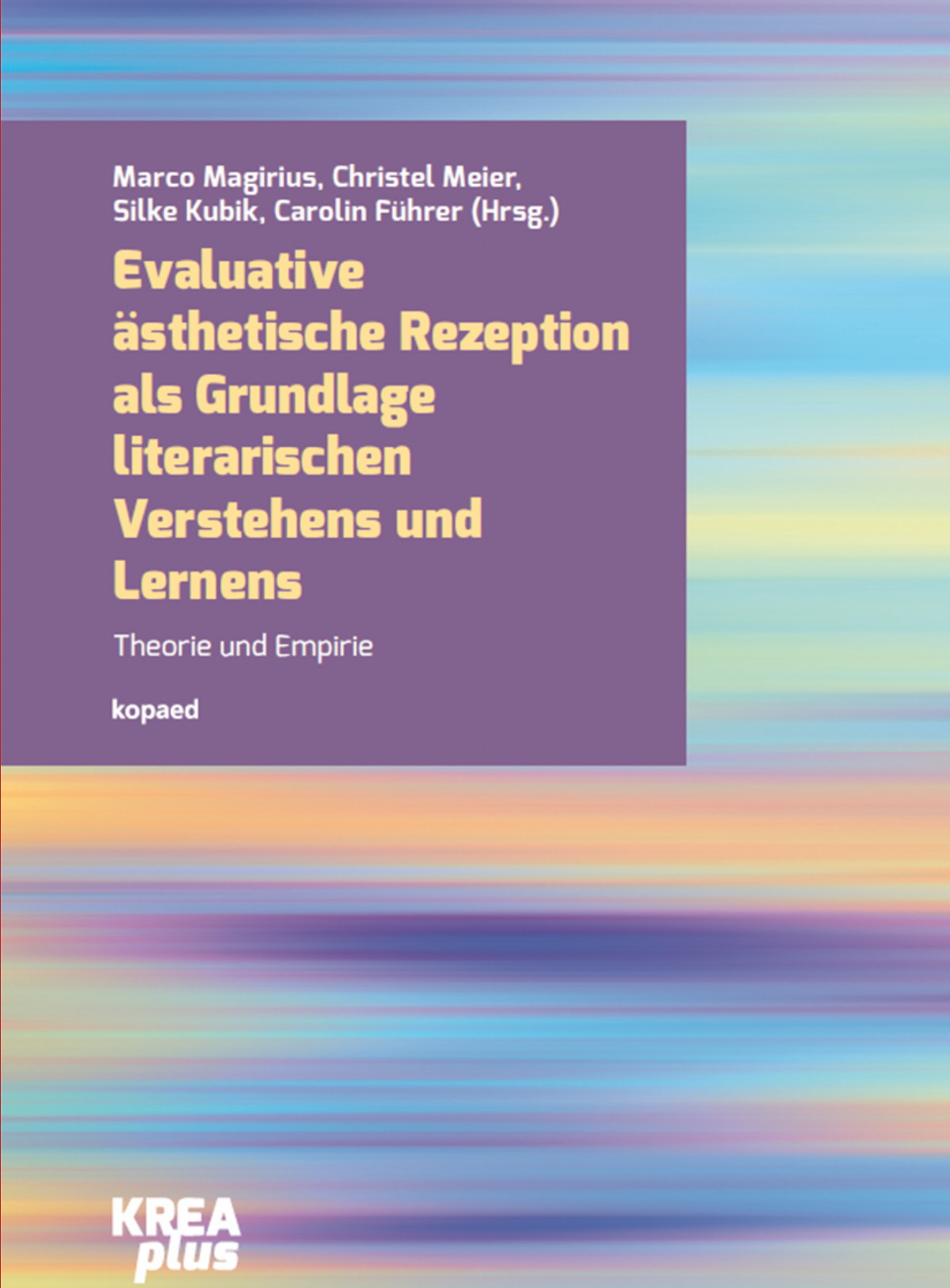 Gänsehaut, Liebe und Langeweile. Sprachliche Konstitution von Emotionen in Laienbuchrezensionen aus dem Schullektürekanon
Gänsehaut, Liebe und Langeweile. Sprachliche Konstitution von Emotionen in Laienbuchrezensionen aus dem Schullektürekanon
-
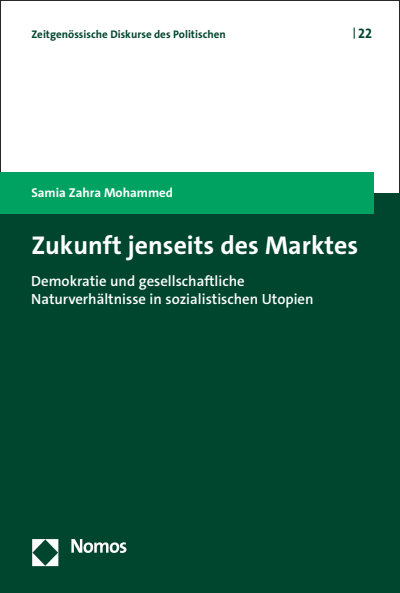 Zukunft jenseits des Marktes. Demokratie und gesellschaftliche Naturverhältnisse in sozialistischen Utopien
Zukunft jenseits des Marktes. Demokratie und gesellschaftliche Naturverhältnisse in sozialistischen UtopienThe almost constantly recurring crises of the democratic order and relations between humans and nature in our age of the Capitalocene are currently reviving debates on economic models beyond the capitalist market economy.
-
 Introduction. Postcolonial Oceans. Contradictions, Heterogeneities, Knowledges, Materialities
Introduction. Postcolonial Oceans. Contradictions, Heterogeneities, Knowledges, Materialities
-
 Making a Theme Audible. Imparting Non-Discursive Knowledge in Natural Philosophy by Means of Poetry and Aphorism
Making a Theme Audible. Imparting Non-Discursive Knowledge in Natural Philosophy by Means of Poetry and AphorismThis paper is about poetry as a vehicle for imparting knowledge in natural philosophy. It discusses the epistemological and cultural background against which early Greek thinkers such as Parmenides and Empedocles composed in verse, and it explores the rationale why poetry was thought to be a preferred means for transmitting important and often non-discursive knowledge about nature—in other words, how poetry was meant to make “a philosophical theme audible,” to prompt an insight that organizes a large field of experience. Much later, related assumptions find a (last) heyday in Goethe’s attempt to write a Naturgedicht in the vein of Lucretius. Even though new insights especially from classical German philosophy influenced Goethe, his reasons for writing nature poetry show striking continuities with those of his ancient peers. The paper ends with a brief look at later attempts to “make philosophical themes audible” in the context of an ever-increasing fragmentation of knowledge.
-
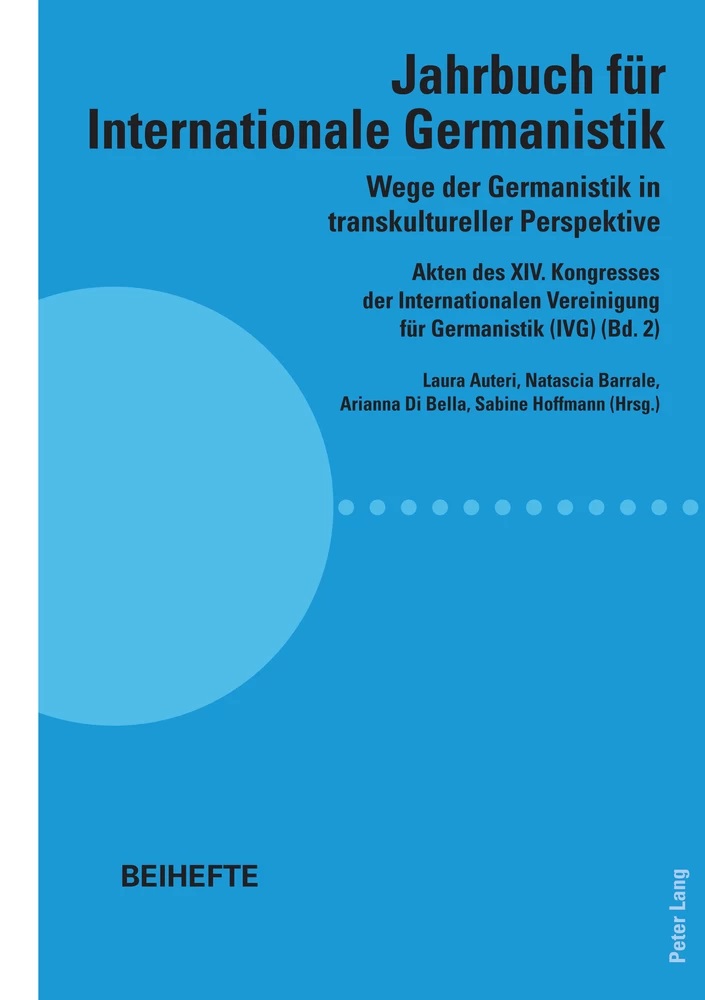 Digitale Räume als Aushandlungsort für Zentralität und Marginalität
Digitale Räume als Aushandlungsort für Zentralität und Marginalität
-
 The Colonial Making of Bremen’s Peri-Urban Port Area
The Colonial Making of Bremen’s Peri-Urban Port Area
-
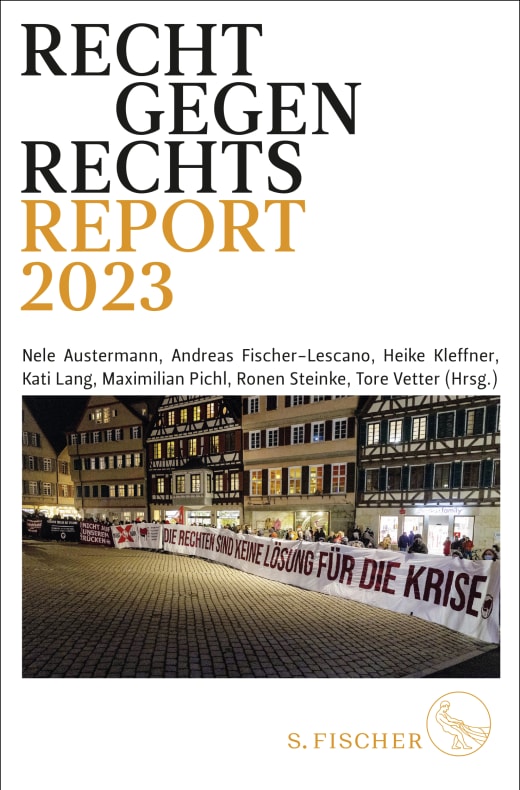 Babycaust? Keine Volksverhetzung! Die deutsche Justiz versagt bei der Bekämpfung von Holocaustverharmlosung und Aufstachelung zum Hass
Babycaust? Keine Volksverhetzung! Die deutsche Justiz versagt bei der Bekämpfung von Holocaustverharmlosung und Aufstachelung zum Hass